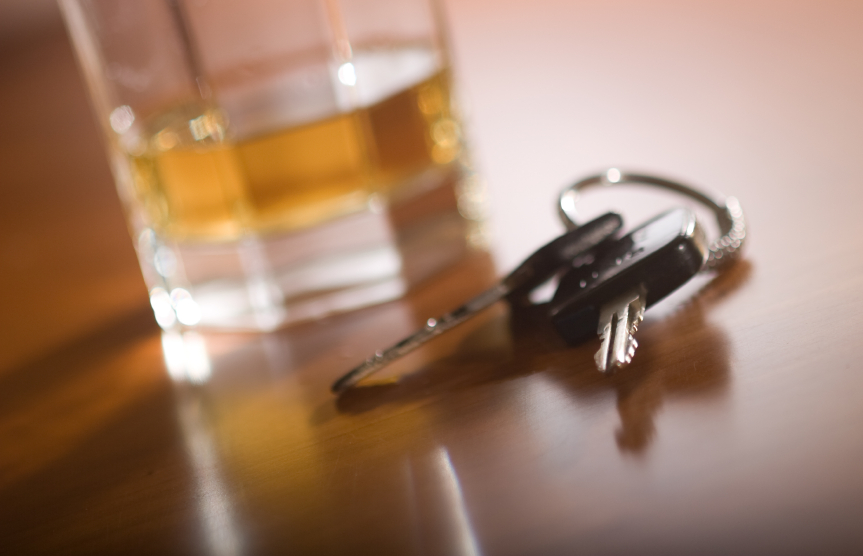
Alcohol is the culprit in many devastating car accidents every year in Dallas. A motorist should never get behind the wheel of a car after drinking. The onus falls on the driver to know when he or she has had too many and to call a cab or designate a sober driver. It is never appropriate to drive while intoxicated. Those who fail to abide by this rule put themselves and others in harm’s way.
Additionally, it is the responsibility of businesses that serve the alcohol to make sure no one unfit to drive gets behind the wheel. Dram Shop Liability, as it is called, refers to the responsibility of any liquor serving business. It is their job to cut off any person that they feel is intoxicated to the point that he/she might be dangerous to themselves or others.
Dram Shop Laws in Texas
Licensed liquor providers can be sued for any alcohol-related injury or death if they furnish alcohol to an obviously intoxicated adult or serve alcohol to a minor.
Texas Dram Shop laws do not only relate to DWI (Driving While Intoxicated) accidents and traffic fatalities. Licensed providers can also be held liable for sexual assault, property damage, and other crimes if they provided alcohol to the perpetrator who was already visibly intoxicated to the point of presenting a clear danger to himself or others.
Crowe Arnold & Majors, LLP can help
If you suffered injuries and damages from the actions of an intoxicated person, you may have a claim against the establishment that furnished the individual with alcohol. Given the complexities of these cases and the burden of proof required, it’s best to discuss your situation with a skilled Dallas dram shop lawyer at Crowe Arnold & Majors, LLP. For more than 25 years, our legal team has helped victims in North Texas recover over $110,000,000 in total for the negligence of others.
Through civil litigation, our Dallas car accident lawyers aggressively pursue those establishments that willfully violate these rules, putting countless people at risk.
Signs of “obvious intoxication”
Texas Dram Shop Laws impose civil liability on the owner of an establishment that sells alcoholic beverages to an obviously intoxicated person who causes injury to another as a result of the inebriation. Bars, nightclubs, liquor stores, and restaurants all fall under this Dram Shop Act, as do any licensed vendors that furnish alcohol.
How are bars and other establishments expected to know when a customer is ‘obviously intoxicated?’ Everyone processes alcohol differently, but the state expects providers of alcohol to be familiar with visible cues of intoxication, including:
- Belligerence
- Loud or erratic behavior
- Slurred speech
- Loss of balance, swaying
- Poor coordination
- Unsteady on feet
- Spilling drinks
- Vomiting
- Nausea
- Bloodshot eyes
- Overtly sexual behavior
- Loss of inhibitions
- Nodding off
If a bartender or restaurant server noted signs of drunkenness yet continued to provide the person alcohol, dram shop liability would apply to any harms the intoxicated person caused.
Dram shop liability – evidence needed
Proving obvious intoxication can be challenging without the right personal injury lawyer. At Crowe Arnold & Majors, LLP, our goal is helping clients achieve swift justice. Toward that end, we conduct thorough investigations to uncover both direct and circumstantial evidence that demonstrates the defendant was clearly inebriated, and that the establishment over-served them anyways.
Direct evidence may include restaurant receipts, credit card receipts, and blood toxicology showing a .08 BAC. Circumstantial evidence can also corroborate a dram shop case.
Quite often, there is eyewitness testimony provided by others who saw the drunk patron, security footage taken inside the establishment that shows erratic behavior, and expert testimony provided by a toxicologist.
Can you sue a bar for overserving?
Yes, a bar or other licensed provider that overserves a patron who is obviously drunk can be sued in civil court if that person causes an accident or otherwise harms another. There are two types of actions that fall under Dram Shop liability laws. First-Party dram shop lawsuits are filed by the drunk drivers themselves, if they run off the road and hurt themselves, for example. Third-Party dram shop lawsuits are filed by a third party that was injured or killed by an overserved drunk driver.
First Party Dram Shop cases
In a first-party dram shop claim, the intoxicated person is injured in an accident and is suing the licensed establishment for serving him or her too much alcohol, which rendered them incapable of making rational decisions, therefore causing the injuries. Not every state allows these types of first-party claims, but Texas does.
Third Party Dram Shop cases
In a third-party dram shop case, it is an innocent third person who is injured and is suing the intoxicated person and the establishment that overserved them. For example, a person gets drunk in a bar that keeps serving him drinks well after he is visibly intoxicated. The bar closes, the man nods off at the wheel in a DWI accident, causing serious personal injuries and property damage to a third party. In this scenario, the plaintiff can sue both the drunk driver and the vendor, seeking damages for medical expenses, lost income, pain and suffering, and other related losses.
Dram Shop attorneys serving Dallas
Dram Shop laws are designed to keep bars and other establishments from negligent serving practices, and when they violate these rules, victims have a right to sue for compensation. For more information about civil liability for over-serving alcohol, contact a Dallas personal injury lawyer at Crowe Arnold & Majors. Call today to schedule your free consultation.





